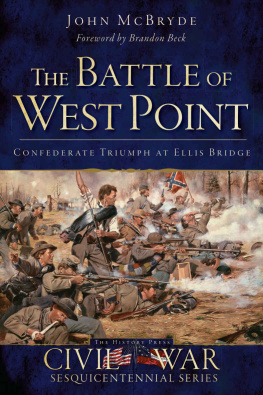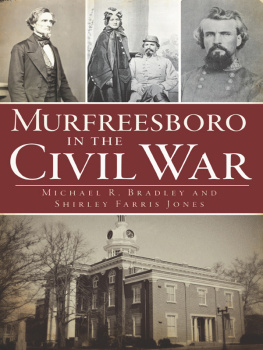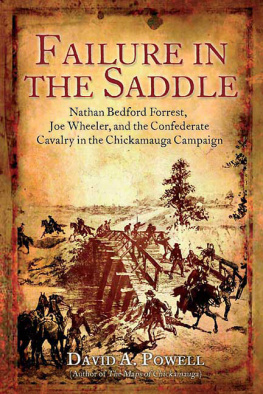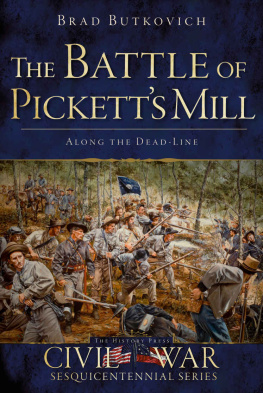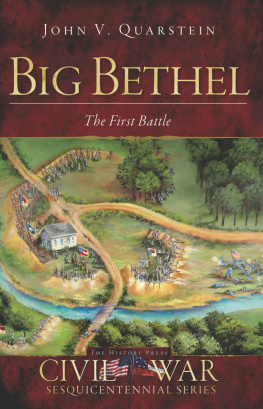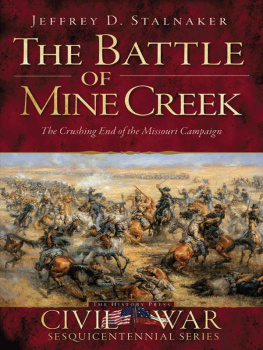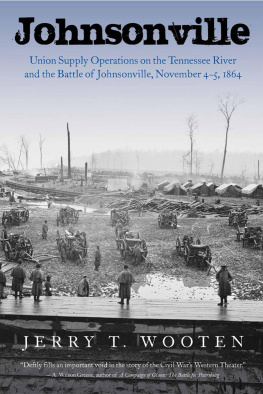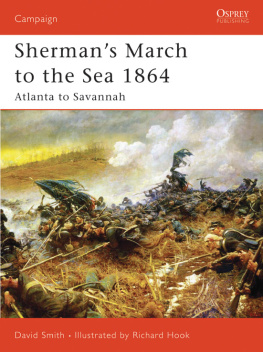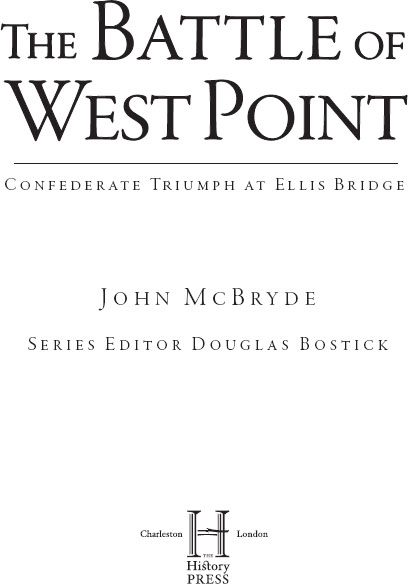
Published by The History Press
Charleston, SC 29403
www.historypress.net
Copyright 2013 by John McBryde
All rights reserved
Cover image: Gray Wall by Don Troiani.
First published 2013
e-book edition 2013
Manufactured in the United States
ISBN 978.1.62584.055.4
Library of Congress Cataloging-in-Publication Data
McBryde, John, 1950
The Battle of West Point : Confederate triumph at Ellis Bridge / John McBryde.
pages cm. -- (The History Press Civil War sesquicentennial series)
Includes bibliographical references.
print edition ISBN 978-1-60949-987-7
1. West Point, Battle of, West Point, Ga., 1865. I. Title.
E477.96.M35 2013
973.738--dc23
2013013807
Notice: The information in this book is true and complete to the best of our knowledge. It is offered without guarantee on the part of the author or The History Press. The author and The History Press disclaim all liability in connection with the use of this book.
All rights reserved. No part of this book may be reproduced or transmitted in any form whatsoever without prior written permission from the publisher except in the case of brief quotations embodied in critical articles and reviews.
Several people in my life have contributed much to the writing and production of this book. Without them, this book would not have come to fruition. I would like to first dedicate this book to my mother, Mrs. Pat McBryde, who pushed me while growing up to work hard and succeed. Her encouragement made me strive to make something out of life. I would also dedicate this book to my grandmother, Mrs. Sally Davis, who told me stories of historical events that made me want to read history; I later developed my own desire to study the history of our past, especially the history of the American Civil War. She told me stories of her grandfather, who fought at Wilsons Creek.
Finally, I would like to dedicate this book to Mrs. Esther Pippin, my junior high school librarian, who encouraged me to read all types of books but could never get me away from historical books. She inspired me to read everything I could put my hands on. All three of these women encouraged me through the years to read and to study. They all contributed to my determination to write this history.
CONTENTS
FOREWORD
The year 1864 was the hardest and most decisive year of the Civil War. Although the majority of the wars bloodiest battles came earlier, 1864 stands out as the worst year of our worst war.
The previous year left the Confederacy reeling from three separate disasters: the defeat at Gettysburg, the surrender at Vicksburg and the loss of Chattanooga. With the strategic initiative now firmly in the grasp of the Federal government, the Confederacy could do little more than prepare for a defensive struggle against odds heavier than those in 1863. The Federal campaigns led to fierce combat, unprecedented in several ways. For one, the fighting in 1864 was relentless and intensive. Once the major field armies met, respites were few and far between. Second, the fighting was extensiveseemingly everywhere in what remained of the Southern Confederacy. By wars end the following spring, only Alabama and Florida had escaped the march of major armies. Third, 1864 marked the first full application of total war on Southern civilians. Civilians in north Georgia, Atlanta, the Shenandoah Valley, along William Tecumseh Shermans route to the sea and throughout wide areas of South Carolina all felt the impact of hard war. Finally, the character of war became more desperate than ever before. In the Union, President Abraham Lincoln faced uncertain reelection. In an increasingly unpopular war, he would need significant and impressive victories. President Jefferson Davis, by contrast, faced no electoral challenge. He faced the defeat of his country. The disasters of 1863, the loss of much of the Confederate heartland and the declining source of manpower all combined to put the Confederacys life on the line.
With large parts of Arkansas, Kentucky, Louisiana, Maryland, Missouri, even Texas and especially Tennessee under Federal occupation, Confederate soldiers from those states found the Federals between them and their homes.
Historians have well recognized and described these realities in a large number of excellent studies of the campaigns of 1864. What has not been generally recognized, however, is that all of itintensive fighting, extensive fighting and total war in increasingly desperate circumstancesbegan in Mississippi. And the spring campaigning season came early in Mississippiin February, in fact. General William T. Shermans Meridian Campaign was the first campaign of the wars worst year.
His campaign was aimed at Meridian, an important railroad junction in southeast Mississippi, and at the Mississippi Black Prairie country in northeast Mississippi. Both were important logistically to the Confederate Army of Tennessee, which would be hard-pressed to defend Atlanta. Sherman planned a two-pronged campaign: he would lead infantry east from Vicksburg to Meridian, while General William S. Smith would lead cavalry south from Memphis, through the Prairie, to rendezvous with Sherman at Meridian. Selma, or even Mobile, loomed as possible further objectives.
The South summoned up its last resources and energy throughout 1864. Again it began in Mississippi, in February. Generals Nathan Bedford Forrest and Stephen D. Lee organized the defense of the Black Prairie. To do it, Forrest would have to recruit his new commandin west Tennessee, from behind Federal lines and in the dead of winter. He came to dominate this campaign, as he dominated my earlier book on the Meridian Campaign (February 27, 1864), The Battle of Okolona: Defending the Mississippi Prairie (The History Press, 2009). In this study at the opening of the campaign, leading to the Battle of Ellis Bridge (February 21, 1864), John McBryde introduces the campaign in the Prairie, as well as Forrest at the beginning of his greatest year as a soldier, in the worst year of our worst war.
BRANDON BECK
February 26, 2013
ACKNOWLEDGEMENTS
Several people have contributed much to the formation of this book. I would like to thank the staff of the Chancery Clerks office and Mr. Robbie Robinson for giving me access to the land deeds of Clay County. I found out a lot about the early settlers of Clay County and the land held by the Ellis family along Sakatonchee Creek. I would like to thank the staff of Bryan Public Library in West Point for contending with me as I spent countless hours in the Local History Room of the library researching the history of the area in 1864. I would like to thank the staff of the Special Collections at Mitchell Memorial Library at Mississippi State University for helping me research letters as well as journals of individuals who resided in West Point when the Federal army invaded the area in 1864. I would also like to thank Brandon Beck for encouraging me to write this story, especially after he published The Battle of Okolona. I would also like to thank him for allowing me to use pictures from his book.
To help me understand the battle, I have had the privilege to walk over the area where the fighting actually took place west of West Point. I would like to thank the owner of the land and his son-in-law, Mr. Billy Poss, for making it possible for me to view the land. If there is anyone else who contributed to this book by giving me insight into the battle, I would like to thank you. Most of all, I would like to thank my wife, Janet McBryde, for putting up with me while I spent countless hours researching and writing this book. She has shown a lot of patience with me and given me encouragement along the way.
Next page
